Elm:
the best of functional programming in your browser
Who's this guy?
- Cameron Alexander
- github/twitter: @emptyflash
- iOffice

THE HYPE

It's fast
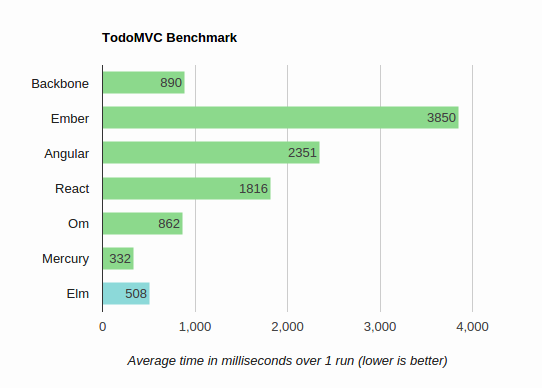
It's reliable
It's got cool stuff
Crazy helpful error messages
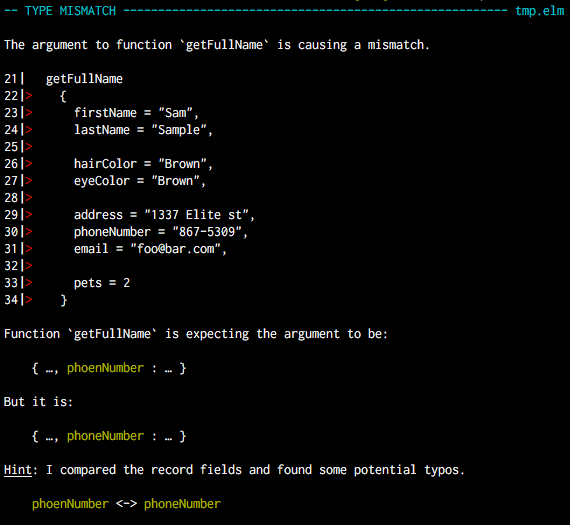
What is Elm?
Elm is a programming language that compiles to JavaScript
Elm is functional
Elm is statically and strongly typed
Elm is reactive
Elm is in the ML family

Haskell
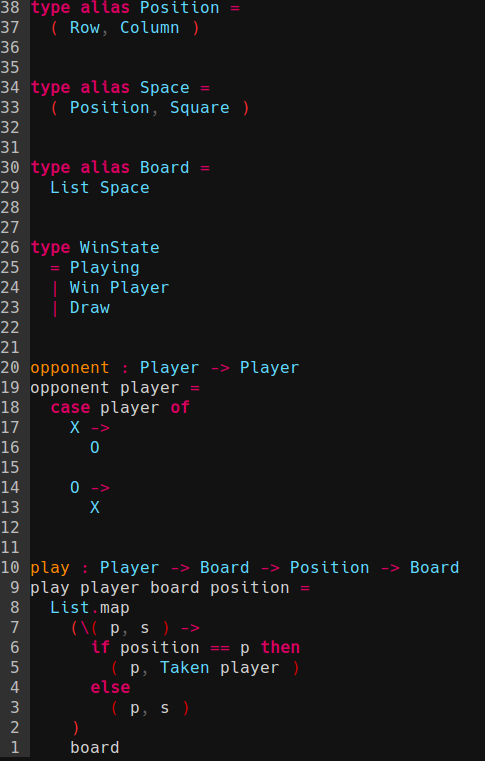
Elm
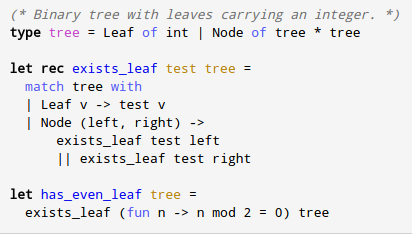
OCaml
Why wouldn't I just use X?
The community is great
Elm isn't as scary
Elm is constantly evolving
The Basics
var numbers = [1, 2, 3];
var first = numbers[0];
var doubleFirst = first * 2;numbers =
[ 1, 2, 3 ]
first =
List.head numbers
doubleFirst =
first * 2JavaScript
Elm
var numbers = [];
var first = numbers[0];
var doubleFirst = first * 2;
// doubleFirst = NaNnumbers =
[]
first =
List.head numbers
doubleFirst =
first * 2
-- doubleFirst = ???JavaScript
Elm
Buuuuut.....
Elm is different
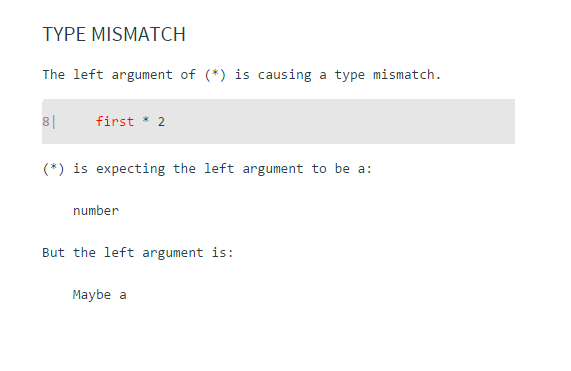
What's a maybe?

numbers =
[]
first =
Maybe.withDefault 0 (List.head numbers)
doubleFirst =
first * 2Here's how you handle it
import Html exposing (text)
main =
text "Hello, World!"Hello, World!
add: Int -> Int -> Int
add x y =
x + y
\x y -> x - y
added =
add 1 2How about some functions
record =
{ key = "value"
, key2 = "value2"
}
record.key -- returns "value"
.key record -- returns "value
{ record | key2 = "new value" }
list = [1, 2, 3]
List.head list -- returns Just 1
List.length list -- returns 3
recordsList = [record, record, record]
List.map .key recordList -- returns ["value", "value", "value"]Data structures?
if powerLevel > 9000 then
"*crushes scouter*"
else if powerLevel > 8000 then
"still pretty good"
else
"meh"If statements
volume width height depth =
let
area = width * height
in
area * depthIntermediate values
case aList of
[] -> "matches the empty list"
[x]-> "matches a list of one item, " ++ toString x
_ -> "matches anything else"Pattern matching
case List.head someList of
Just x -> "The first element is " ++ (toString x)
Nothing -> "The list was empty."Pattern matching with Maybes
type Fruit = Apple | Orange
apple = Apple
case apple of
Apple -> "Value is Apple"
Orange -> "Value is Orange"Union types
type Wallet = Money Float | Broke
richDude = Wallet 1000000.0
cameron = Broke
case richDude of
Money amount -> "This person has $" ++ (toString amount)
Broke -> "This person is broke"Union types with a value
type Maybe a = Just a | Nothing
maybe =
Just 42
case maybe of
Just x -> "Our maybe had the value of " ++ x
Nothing -> "Our maybe was nothing"Generic union types
multiply a b =
a * b
double =
multiply 2
subtract a b =
a - b
subtractOne =
subtract 1
doubleThenSubtractOne =
double >> subtractOne
subtractOneThenDouble =
double << subtractOneFunction composition
five =
5
add a b =
a + b
double a =
a * 2
fourteen =
five
|> double
|> add 4Forward application
five =
5
add a b =
a + b
double a =
a * 2
fourteen =
add 4 << double <| fiveBackward application
origin : { x : Float, y : Float }
origin =
{ x = 0
, y = 0
}
type alias Point =
{ x : Float
, y : Float
}
otherOrigin =
Point 1 1
hypotenuse : Point -> Float
hypotenuse {x,y} =
sqrt (x^2 + y^2)
Record types
type alias Positioned a =
{ a | x : Float, y : Float }
type alias Named a =
{ a | name : String }
type alias Moving a =
{ a | velocity : Float, angle : Float }
lady : Named { age:Int }
lady =
{ name = "Lois Lane"
, age = 31
}
dude : Named (Moving (Positioned {}))
dude =
{ x = 0
, y = 0
, name = "Clark Kent"
, velocity = 42
, angle = degrees 30
}Extensible records
module Name (MyType, myValue)
type MyType = Something | OtherThing
myValue =
SomethingModules
-- No module means Main
import Name
myValue =
Name.myValue
-- OR
import Name exposing (myValue)
-- OR
import Name as N
myValue =
N.myValueQuestions so far?
Advanced stuff
Signals
Like callbacks, but not
PUB SUB
Tasks
Like promises, but not
Tasks
Task.map
(\s -> s + " tasks")
Task.succeed "Hello"
Task.succeed 2
`andThen` (\n -> Task.succeed (n + 2))$q.resolve("Hello").then(function(string) {
return string + " promises";
});
$q.resolve(2).then(function(n) {
return $q.resolve(n + 2);
});The Elm Architecture
Like a framework, but not
Questions?
Elm for Functional Programmers
By Cameron Alexander
Elm for Functional Programmers
- 990



